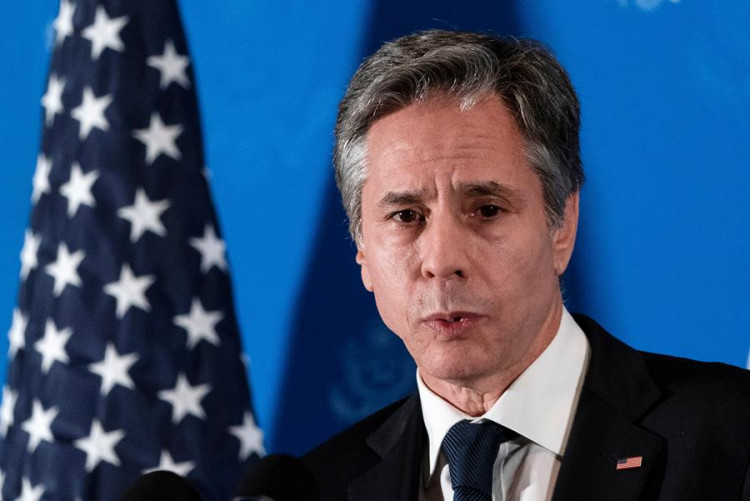In an assertive exchange on Wednesday, China's foreign minister, Qin Gang, strongly recommended that the U.S. abstain from interfering in Chinese affairs and undermining its security. This comes as a prelude to the anticipated trip of U.S. Secretary of State Antony Blinken to Beijing in the near future.
During the call, Qin emphasized the importance of respecting China's core interests, including Taiwan, to stave off further deterioration in ties between the global superpowers, as per information from the Chinese foreign ministry.
Blinken underscored the value of communication "to avoid miscalculation and conflict," according to the State Department's summary of the call. He assured that the U.S. will persist in addressing areas of concern, as well as potential avenues for cooperation with China.
The State Department announced on Wednesday that Blinken is slated to visit China and Britain from June 16 through June 21. This follows an earlier statement by a U.S. official that Blinken's Beijing arrival was scheduled for June 18. Chinese state media suggests the visit will span June 18-19.
The purpose of Blinken's visit is to engage with senior Chinese officials to "raise bilateral issues of concern," along with other global, regional, and shared transnational challenges, as outlined by the State Department.
Should the trip proceed as planned, it would be the first visit by a U.S. Secretary of State to China in five years. It would also represent the most high-profile visit by a member of President Joe Biden's administration, which has faced numerous disagreements with Beijing on issues varying from espionage allegations to disputes over semiconductors.
In February, Blinken had called off a planned Beijing trip following a suspected Chinese spy balloon's intrusion into U.S. airspace. Further information regarding Blinken's upcoming trip is yet to be disclosed by the Chinese foreign ministry.
The U.S.'s official engagements with Taiwan, viewed by Beijing as a crucial part of its territory despite its democratic governance, have exacerbated the strain between the world's two leading economies.
Qin pointed out to Blinken that "Sino-U.S. relations have encountered new difficulties and challenges since the beginning of the year, and the responsibility is clear," as per the readout from the Chinese foreign ministry.
Qin urged the U.S. to "stop interfering in China's internal affairs, and stop harming China's sovereignty, security and development interests in the name of competition."





